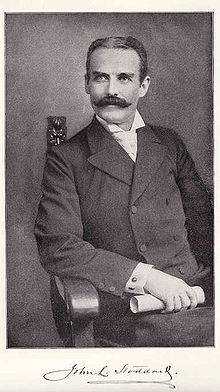Marble fragment, freed at last
From thy prison of the past,
By a spade-thrust brought to light
After centuries of night,-
Let me take thee in my hand,
And thy legend understand.
On thy mutilated face
It is difficult to trace
All that once was graven here;
But at least two words are clear,-
Reading still, as all agree,
“Conjugi Carissimae.”
“To my well-beloved wife”;-
Only this; but of her life,
Rank or title, age or name,
Or the place from which she came,
Nothing further can be known
Than is taught us by this stone.
Touching words they are, which tell
Of a husband's last farewell;
Cry of a despairing heart
That has seen a wife depart
On death's dark, uncharted sea;-
“Conjugi Carissimae!”
Was this lady still a bride,
Or a matron, when she died?
Had she children? Was she fair?
Bright with joy, or bowed with care?
Ah, pathetic mystery!
“Conjugi Carissimae.”
Yet, in truth, what matters all,
Save the fact these words recall?
She was loved,-a consort mourned
In the home she had adorned;
And her husband long ago
Left the words which tell us so.
Strange, that these alone remain,-
Words of mingled love and pain!
Time, which broke or blurred the rest,
Tenderly has spared the best;
For what better could there be?
“Conjugi Carissimae.”
Ancient relic, white and pure,
May thine epitaph endure,
While the lake with dimpled smile
Mirrors this historic isle!
Precious are thy words of old,
Worthy of a script of gold!
Soon upon this island's shrine
Shalt thou like a jewel shine,-
Dearest of its treasure-trove,
Emblem of a deathless love
From its sepulchre set free,-
“Conjugi Carissimae.”
Conjugi Carissimae
John L. Stoddard
(1)
Poem topics: alone, children, dark, death, farewell, heart, home, joy, life, light, night, pain, sea, smile, time, truth, white, agree, long, place, Print This Poem , Rhyme Scheme
Submit Spanish Translation
Submit German Translation
Submit French Translation
Write your comment about Conjugi Carissimae poem by John L. Stoddard
Best Poems of John L. Stoddard
